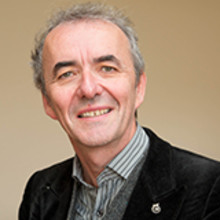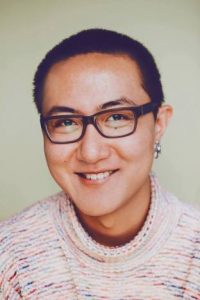2019 – Translation and Identity
10th Annual Glendon Graduate Conference in Translation Studies:
Translation and Identity
Toronto, Canada, March 2, 2019
The students of the Master in Translation Studies at Glendon College, York University, are pleased to announce the 10th Annual Graduate Student Conference in Translation Studies to be held at Glendon College in Toronto on March 2, 2019.
Keynote speaker
 Michael Cronin is 1776 Professor of French and Director of the Trinity Centre for Literary and Cultural Translation in Trinity College Dublin. He is author of Translating Ireland: Translation, Languages and Identity (Cork University Press, 1996); Across the Lines: Travel, Language, Translation (Cork University Press, 2000);Translation and Globalization (London, Routledge, 2003). Time Tracks: Scenes from the Irish Everyday (Dublin, New Island, 2003. Reprinted 2003); Irish in the New Century/An Ghaeilge san Aois Nua (Dublin, Cois Life, 2005), Translation and Identity (Routledge, 2006); The Barrytown Trilogy (Cork University Press: Ireland into Film series, 2007); Translation goes to the Movies (Routledge 2009), The Expanding World: Towards a Politics of Microspection (Zero Books, 2012), Translation in the Digital Age (Routledge 2013), Eco-Translation: Translation and Ecology in the Age of the Anthropocene (Routledge 2017). He was Irish Language Literature Advisor, Arts Council of Ireland (2009-2011). He is an elected Member of the Royal Irish Academy and the Academy of Europe and is an Officer in the Ordre des Palmes Académiques. He is an Honorary Member of the Irish Translators and Interpreters Association.
Michael Cronin is 1776 Professor of French and Director of the Trinity Centre for Literary and Cultural Translation in Trinity College Dublin. He is author of Translating Ireland: Translation, Languages and Identity (Cork University Press, 1996); Across the Lines: Travel, Language, Translation (Cork University Press, 2000);Translation and Globalization (London, Routledge, 2003). Time Tracks: Scenes from the Irish Everyday (Dublin, New Island, 2003. Reprinted 2003); Irish in the New Century/An Ghaeilge san Aois Nua (Dublin, Cois Life, 2005), Translation and Identity (Routledge, 2006); The Barrytown Trilogy (Cork University Press: Ireland into Film series, 2007); Translation goes to the Movies (Routledge 2009), The Expanding World: Towards a Politics of Microspection (Zero Books, 2012), Translation in the Digital Age (Routledge 2013), Eco-Translation: Translation and Ecology in the Age of the Anthropocene (Routledge 2017). He was Irish Language Literature Advisor, Arts Council of Ireland (2009-2011). He is an elected Member of the Royal Irish Academy and the Academy of Europe and is an Officer in the Ordre des Palmes Académiques. He is an Honorary Member of the Irish Translators and Interpreters Association.
Call for Papers (EN)
Glendon Graduate Student Conference in Translation Studies
Theme: Translation and Identity
Glendon College, York University (Toronto) – March 2, 2019
Keynote speaker: Michael Cronin, Trinity College Dublin
Translators are not simply language technicians; they bring something crucial and significant to translation: their identities. But to what culture does their identity belong? Can a translator belong to any single cultural identity? Can translation be an identity? As Ivana Hostová (2017) notes, the concept of identity made its formal début in translation studies in the mid-1990s and its popularity as a research topic has been growing ever since. This year’s graduate student conference will explore the various intersections between translation and identity: the pitfalls and triumphs of cultural translation in an age of globalisation, the role of translators as cultural mediators in the process of intercultural communication, the issues of hybrid identity, as well as perceptions of identity through the prism of gender.
We invite proposals for papers from a variety of fields and perspectives that engage with issues including, but not limited to:
- Identities of translators in the digital age
- Gender and translation
- Fictional representations of translators/interpreters
- Translation in bilingual contexts
- Migration and migrant literature
- Translator responsibilities in postcolonial contexts
- Translator (in)visibility
Our one-day multilingual conference will address these and related topics. We welcome proposals for papers (20-minute presentations) and posters. Those interested are invited to submit an abstract of 250-300 words by December 15, 2018 to transconf2019@gmail.com. Submissions should include the title of the paper and the author’s name, affiliations, and contact information.
References
Hostová, Ivana.Identity and Translation Trouble.Cambridge Scholars Publishing, 2017.
Appel à communications (FR)
Conférence en traductologie des étudiants des cycles supérieurs – Université York campus Glendon
Thème : Traduction et identité
Université York (Toronto), campus Glendon – Le 2 mars, 2019
Conférencier principal : Michael Cronin, Trinity College, Dublin
Les traducteurs ne sont pas que des langagiers. Ils ajoutent un ingrédient crucial à leur travail : leur identité. Mais à quelle culture appartient l’identité d’un traducteur ? Un traducteur peut-il vraiment appartenir à une seule identité culturelle ? Peut-on concevoir la traduction comme untype d’identité ? Comme le constate Ivana Hostová (2017), le concept d’identité est apparuformellement dans le domaine de la traductologie au milieu des années 90 et, depuis, il suscite un intérêt croissant comme sujet de recherche. Cette année, la conférence se penche sur lesrapports entre la traduction et l’identité, sur les revers et les victoires de la traduction culturelle à l’ère de la mondialisation, sur le rôle du traducteur comme médiateur culturel dans le cadre de lacommunication interculturelle, sur les questions d’identité hybride et sur les perceptions d’identitéliées au genre.
Nous vous invitons à soumettre votre proposition de communication sur des sujets, des champs et des perspectives variés portant, entre autres, sur les thèmes suivants :
- Identité du traducteur à l’ère numérique
- Genre et traduction
- Représentations fictionnelles des traducteurs et interprètes
- Traduction en contexte bilingue
- Migration et littérature migrante
- Responsabilités du traducteur en contexte postcolonial
- (In)visibilité du traducteur
Notre conférence multilingue d’une journée abordera ces thèmes et d’autres thèmes connexes.Nous acceptons les propositions de communication (présentation de 20 minutes) et les affiches. Les personnes intéressées sont invitées à soumettre un résumé de 250 à 300 mots d’ici le 15 décembre 2018 à transconf2019@gmail.com. Les soumissions doivent inclure le titre de lacommunication ou de l’affiche, le nom de l’auteur, son affiliation et ses coordonnées.
Référence
Hostová, Ivana. Identity and Translation Trouble. Cambridge Scholars Publishing, 2017
Llamado a participar (ES)
Conferencia de Estudiantes de Posgrado de Glendon sobre Traductología
Tema: La traducción y la identidad
Lugar: Glendon College, York University (Toronto) – El 2 de marzo, 2019
Expositor principal: Michael Cronin, Trinity College Dublin
Los traductores no son simplemente técnicos de idiomas, sino que aportan algo crucial y significativo a la traducción: sus identidades. ¿Pero a qué cultura pertenece su identidad? ¿Puede un traductor pertenecer a una sola identidad cultural? ¿Puede el traductor ser una identidad? Como señala Ivana Hostová (2017), el concepto de traducción hizo su inicio formal en la traductología a mediados de 1990 y su popularidad como tema de investigación ha ido creciendo desde entonces. La conferencia de estudiantes graduados de este año explorará: las diversas relaciones entre traductores e identidad, los escollos y dificultades de la traducción cultural en una era de globalización, el papel de los traductores como mediadores culturales en el proceso de comunicación intercultural, los problemas de identidad híbrida, así como las percepciones de identidad a través del prisma del género.
Invitamos propuestas para trabajos en una variedad de campos y perspectivas que se relacionan con problemas, pero no se limitan a:
- Identidades de traductores en la era digital
- Sexo y traducción
- Representaciones ficticias de traductores e intérpretes.
- Traducción en literatura bilingüe.
- Migración y literatura migratoria.
- Responsabilidades del traductor en contextos post coloniales
- Traductores en la in-visibilidad.
Nuestra conferencia multilingüe de un día tratará estos y temas relacionados. Damos la bienvenida a propuestas de trabajos (presentaciones de 20 minutos) y pósters. Los interesados están invitados a enviar un resumen de 250 a 300 palabras hasta el 15 de diciembre del 2018a transconf2019@gmail.com. La presentación debe incluir el título del artículo, el nombre del autor, la afiliación y la información de contacto.
Referencias
Hostová, Ivana. Identity and Translation Trouble. Cambridge Scholars Publishing, 2017.
|
9:00 am— 10:00 am |
Registration—Centre for Excellence |
|
|
10:00 am— 10:15 am |
Welcoming Remarks—A100 Representatives of the Organizing Committee Dominique Scheffel–Dunand, co–Interim Principal Thomas Loebel—Dean of Faculty of Graduate Studies Aurelia Klimkiewicz—MATS Director Julie McDonough Dolmaya—CATS Beatriz Hausner—LTAC |
|
|
10:15 am— 11:15 am |
Keynote Lecture—A100 What on Earth has Translation to do with Us — Prof. Michael Cronin, Trinity College Dublin |
|
|
11:15 am— 11:30 am |
Coffee Break |
|
|
11:30 am— 1:00 pm |
SESSION A—TRANSLATION AND NATIONAL IDENTITY—A100 Moderator: Hongyang Ji The Return of Chinese Translators’ National Identity: A Case Study of Xiao Qi- an—Xiangyu Yang Translating Food Identity—Violette Marcelin Translation of China’s Seventeen–Year Literature and the Construction of National Identity– Qifei Kao |
SESSION B—GENDER AND TRANSLATION Moderator: Alina Zdrazhko The Ideology of Gender in Translation: A Study of the Korean Translation of Balzac’s Sarrasine—Essie Lee |
|
1:00 pm— 1:30 pm |
Lunch |
|
|
1:30 pm— 3:00 pm |
SESSION C—IDENTITY & LITERARY TRANSLATION—A100 Moderator: Laura How Rhizoming the Translation Zone: Xiaolu Guo and A Concise Chinese–English Dic- tionary for Lovers—Wangtaolue Guo Cheval Indien: Traduire l’Autre sans le trahir—Dominique Paquet La famille Bélier , portrait cinématographique d’une interprète mineure en quête d’identité—Anne Raffolt |
SESSION D—TRANSLATION IN MULTILINGUAL CONTEXTS Moderator: Dalia Amir Aslani Translating Minorities in Multilingual Societies: The Position of Amazigh in Algerian Socie- ty—Merouan Bendi New Orleans: An Ethnographic Case Study of Language Tensions and Contrasts in a Tourist’s Dérive—Soula Rozic Translators of Turkish Literature: Acting Out Their Identity as Istanbul Greek—Françoise Miquet |
|
3:00 pm— 3:15 pm |
Coffee Break |
|
|
3:15 pm— 4:45 pm |
SESSION E—TRANSLATION AND SOCIAL CHANGE—A100 Moderator: Evan Belford Traduire contre le système: detournement identitaire et contre–discours dans les medias—Alexandre Dubé–Belzile La non–traduction et le sikhisme en français au Québec—Isabelle Cosette “I Celebrate”: Ecological Implications for Translation Theory in the Poetry of Jorge Reichmann—Emily Iekel |
SESSION F—TRANSLATOR AND INTERPRETER IDENTITIES Moderator: Maria Medina Note–taking Skills and Interpreter’s identity in Conference Consecutive Interpreting in the Business Domain—Zihui Wang Dark Side of Emotional Labor: Gendered Accounts of Interpreters’ Alienating Experi- ence—Irem Ayan Invisible Translators: An Insight into Hidden Identities of Ukrainian Translators in the Early 20th Century—Alina Zdrazhko |
|
4:45 pm— 5:00 pm |
Break |
|
|
5:00 pm— 7:00 pm |
Reading & Workshop, followed by Reception—Sky Room (A300) A Succulent Betrayal of Identity: Translation as Play—Fan Wu |
Workshop leader
 Fan Wu is a deep believer in the act of translation as a betrayal of the original. He hosts critical reading & creative writing workshops across Toronto on topics ranging from masochism to mourning. His translations have been published in Scapegoat Magazine, Inventory, and as a chapbook monograph as Hoarfrost & Solace. Please contact him for collaboration or questions at fanwu4u@gmail.com.
Fan Wu is a deep believer in the act of translation as a betrayal of the original. He hosts critical reading & creative writing workshops across Toronto on topics ranging from masochism to mourning. His translations have been published in Scapegoat Magazine, Inventory, and as a chapbook monograph as Hoarfrost & Solace. Please contact him for collaboration or questions at fanwu4u@gmail.com.
A Succulent Betrayal of Identity: Translation as Play
“You can never leave the mind quickly enough.” – Anne Carson
In this reading/translation workshop, Fan Wu will be detailing his traitorous translation method: translation of non-identity. What happens to the concept of translation if it no longer strives for an impossible identity with the original, but instead for free play on the original’s playground? How can we wring translation through the frameworks of procedural play, remixing, and mad hybridity? Wu will be reading some of his own work, the work of traitorous translators in this lineage, and moving through some potential modes of this translation of non-identity. The workshop will close with an exercise in the translation of non-identity that explores the collaborative possibilities of this open-ended mode.
Uploading…
